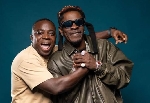Selena Gomez says acts of service help her stay mentally resilient
 Selena Gomez (Jon Kopaloff | Getty Images Entertainment | Getty Images)
Selena Gomez (Jon Kopaloff | Getty Images Entertainment | Getty Images)
“Selena Gomez: My Mind & Me” spotlights the singer-actress’s battle with managing anxiety and depression while performing on her “Revival” tour in 2016.
Following what her team thought was a stellar rehearsal before one of her shows, Gomez broke down in tears due to her lack of confidence in her performance.
“I get the voice that comes in my head that says ‘You missed this,’” she told her team in her documentary on AppleTV+.
Coupled with monitoring her lupus and being bombarded by paparazzi asking about her ex-boyfriend Justin Bieber and her relationship with alcohol, Gomez’s mental health became too much for her to manage.
She canceled her tour after 55 performances.
Soon after, she checked into a mental health facility and was diagnosed with bipolar disorder. “I thought my life was over. I was like ‘This is how I’m gonna be forever,’” she said.
But, with the support of her family and friends, Gomez was able to arrive at a place where she could view her diagnosis as the start of taking her life back into her own hands.
“The more you learn about it, the less you’re going to be afraid of it,” she said.
And ultimately, she found something that made staying mentally resilient a lot easier: service.
‘Service is one of the greatest antidotes to loneliness’
Three years after canceling her tour, Gomez visited two schools that she helped fund in Kenya with the WE Charity. There, she met several students with touching stories that left an everlasting impact on her.
Yet, it was when she jumped back into her press tour for her new album, “Rare,” that she was able to realize how much giving to others fueled her — and how much not doing so drained her.
“I knew what made me happy was connection,” she said.
And her understanding of service’s ability to strengthen her mental health was only heightened when she interviewed Vivek Murthy, U.S. Surgeon General, for her mental health social summit in 2020.
“Service, it turns out, is one of the greatest antidotes to loneliness that we have. We reaffirm to ourselves that we have value to bring to the world,” Murthy told Gomez.
“Simply by being fully present and listening to someone, we can give them something extraordinarily powerful.”
That same year, Gomez created the Rare Impact Fund to raise $100 million to provide free mental health resources for young people.
When thinking back to the psychosis she experienced in 2016, she said, “I think that I needed to go through that to be who I am. And I’m gonna keep going through it, but I’m really happy.”
Source: cnbc.com
Trending Entertainment

Netflix: Profits soar after password sharing crackdown
13:32
Ashanti and Nelly are engaged, expecting a baby
13:16
Fonye Hydraulix – How a sought-after producer became a singer; ‘I was so bored’
12:56
GTA launches Ghana Feast campaign
09:29
Mr Drew sued by Jamrok Bar & Event Centre for absence at agreed-upon Easter event
15:58
'Bold': Kofi Jamar on how 'fast-food paced' music industry left him 'depressed'
10:59
Luigi Maclean 'overwhelmed' as debut album, concert draw 'A Thousand Tongues'
09:36
DNA Ministries ready with 2024 Issachar Conference
22:46
'They are crazy' – Sammy Flex responds to critics, doubles down on Shatta Wale defence
11:53
Board of TGMAs 2024 makes 3 changes for Amerado, Xlimkid
10:52



